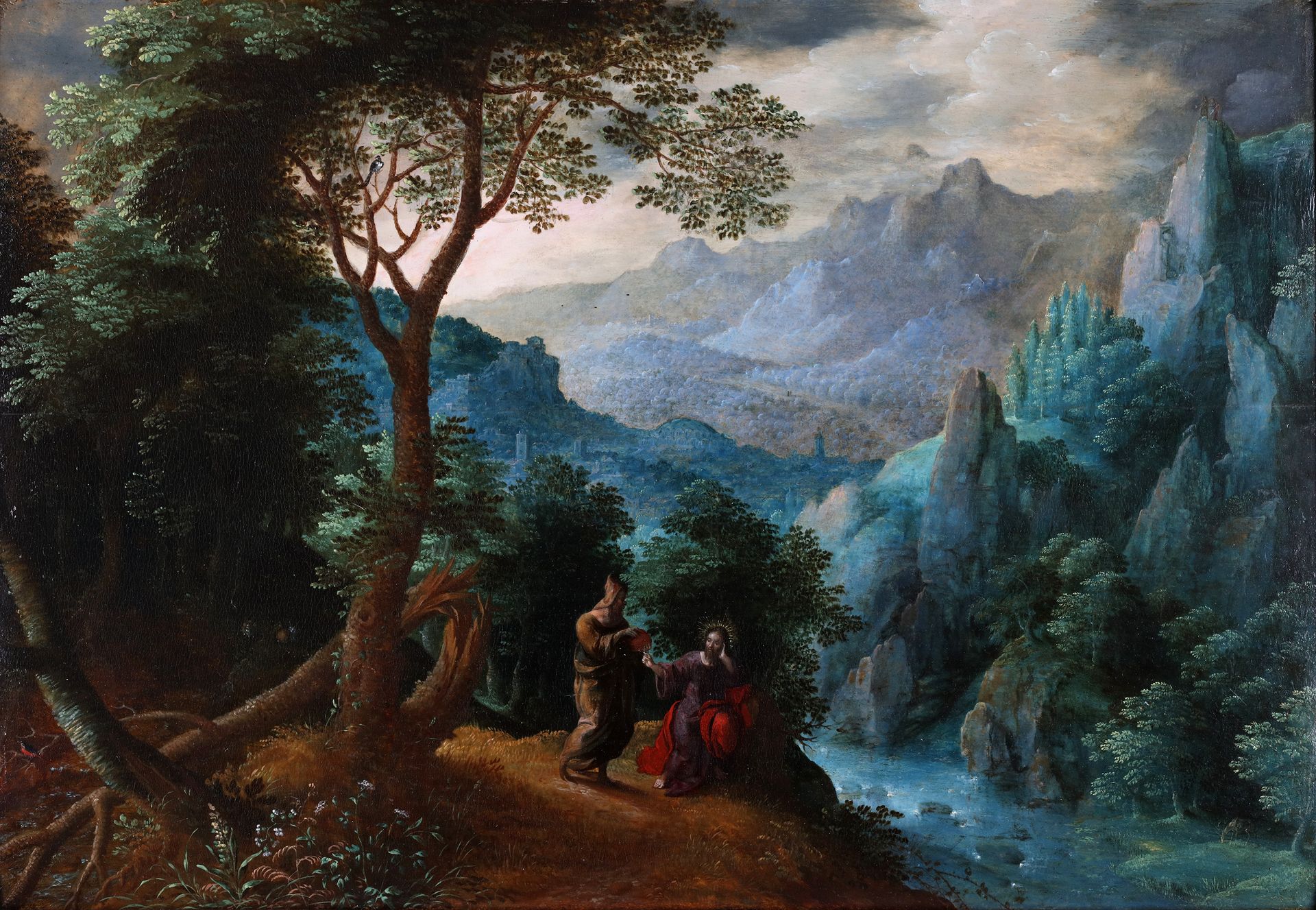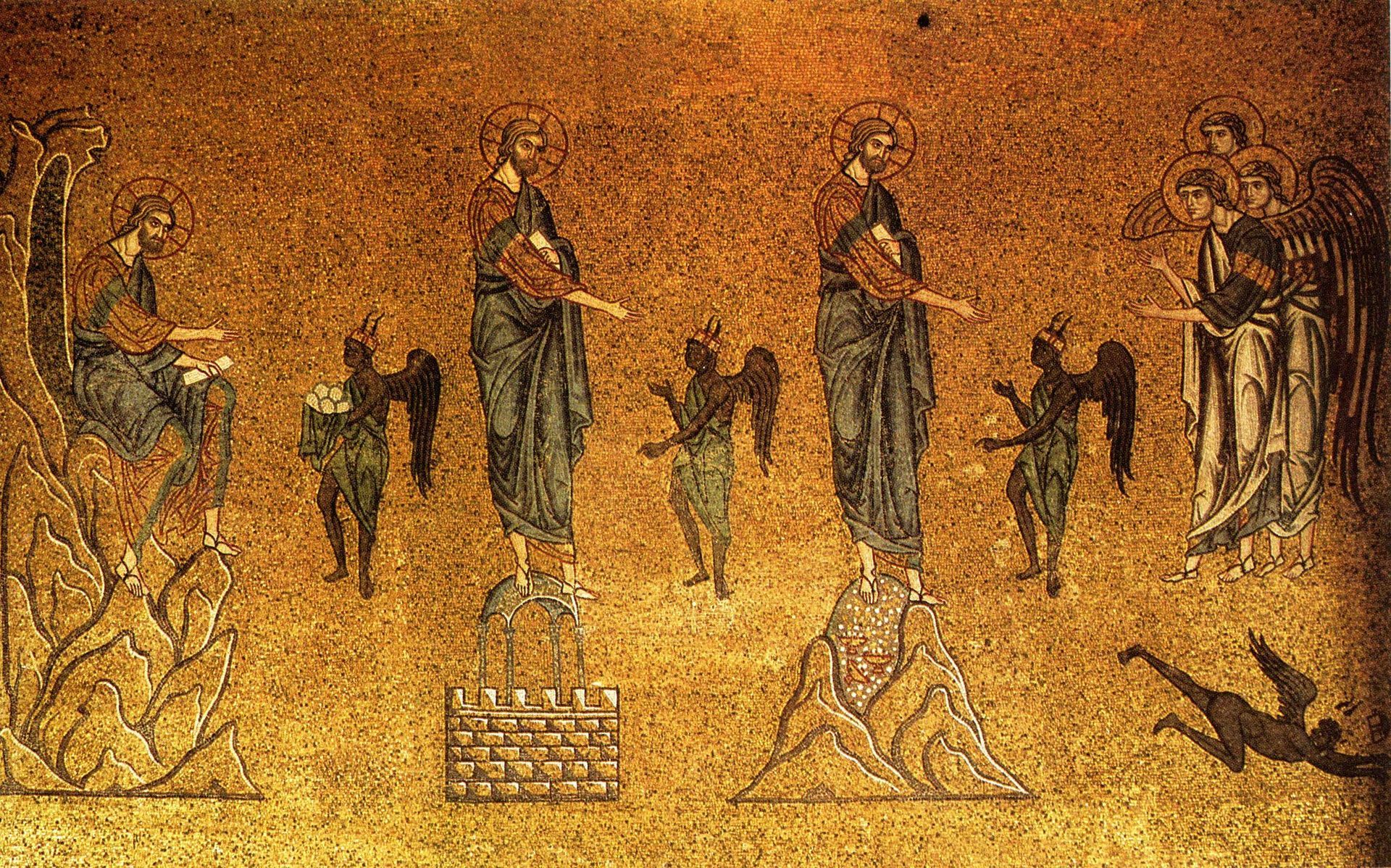Message of Abbot Paul - Sunday - 18th February 2024
Abbot Paul • February 17, 2024



On the First Sunday in Lent, the Church focuses on the temptations of Jesus. What is fascinating about Mark’s account, that we read this year, is its brevity, the fact that forty days and nights are reduced to a single sentence. Compare this with Matthew and Luke. Mark writes, “The Spirit drove Jesus out into the wilderness and he remained there for forty days, and was tempted by Satan. He was with the wild beasts, and the angels looked after him.” Nevertheless, the essential elements of what happened are there.
First of all, Mark makes it quite clear that it’s the Spirit who drove Jesus out into the wilderness. Jesus was not simply inspired or even led, but driven out into the desert by the Spirit. That’s a powerful image. These past weeks, when the wind has been blustery and strong, have you been driven where you didn’t particularly want to go? Missing in our text, strangely enough, is the first word of the sentence, immediately, one of Mark’s favourite words, which we find used forty-one times in his short Gospel. Immediately, i.e. after his baptism, Jesus is driven by the Spirit into the wilderness. Here he remains for forty days and he is tempted by Satan. In Matthew and Luke, the temptations, three in number, take place at the end of his forty days in the desert, but Mark suggests that he was tempted throughout the forty days, although the nature of this tempting isn’t hinted at. The number forty always makes us think back to the Exodus, when the people of Israel wandered through the Sinai Desert on pilgrimage to the Promised Land. They, too, were sorely tempted on many occasions and turned away from God. Jesus was tested as we are tested in life. If he was driven into the desert by the Spirit, then we presume that the Spirit remained with him. Mark tells us that lived among wild beasts and that the angels were with him. Isn’t our life like that? The Spirit is with us, for we are God’s children, and each one of us has a guardian angel, as well as the whole host of angels, to protect us. The wild beasts are all the dangers we encounter on our journey through life, whether they be physical, spiritual, mental, emotional, other humans who would lead us astray, and so on. In the wilderness, Jesus represents us all and he carries our burdens for us. He shows us the path at leads to life and invites us to walk in his footprints.
Mark then describes the beginnings of Jesus’ ministry in Galilee. “After John had been arrested, Jesus went into Galilee. There he proclaimed the Good News from God. ‘The time has come’ he said ‘and the kingdom of God is close at hand. Repent, and believe the Good News.’” Where John the Baptist’s ministry ends, Jesus’ work begins and he begins it in Galilee. The Good News, the Gospel he proclaims, comes from God, from his heavenly Father. The message he preaches and the words he uses are similar to John’s, but now he is talking in the present and about himself. The time has come and the kingdom of God is at hand for Jesus is here. Where Jesus is, there is the kingdom of God, for there is God himself. He invites us to turn to him, by turning away from all that does not lead to God and salvation, for he is the Good News. We learn at the very beginning of his ministry that the Gospel is not a book or a biography but a person. Jesus himself is the Good News, he is the Gospel. Jesus, this Lent, help us to repent and be saved. Be our Good News, our Gospel, and fill our hearts with the joy of walking with you and sharing your life. Amen.









